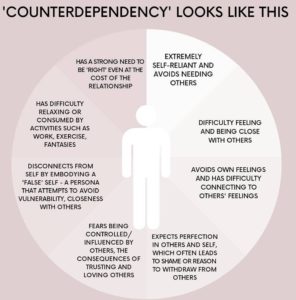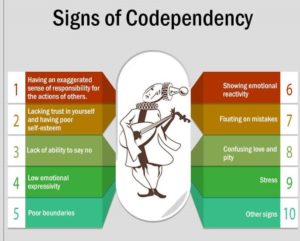Last Updated on June 16, 2021 by Rachel Hall
Let me first say that this post might appear a bit darker than what I usually post or talk about, but this subject is close to my heart and very well worth exploring. So please, bear with me till the end. True intimacy always comes with a lot of risks. This is a paradox: having close emotional ties is necessary for happiness, but no one can guarantee that any of them will not cause severe pain.
Strong feelings can often consume a person whole, to the point where there is almost nothing else left. The fear of losing someone we came to depend on or who has become very dear to us can be overwhelming. Worrying about things is normal, as long as it does not get in the way of building fulfilling relationships. Alas, in some cases such fears can take over a person’s life, forcing them to avoid strong feelings and attachments again and again.
Many stories of complex relationships often include a controversial and mysterious person. Such people make a good impression and show genuine sympathy for those who really ‘hooked them on a feeling’. Yet, when it comes to real emotional intimacy, yesterday’s loving partner can turn into a cold and alienated being who seeks to distance themselves from their partner in a relationship and refuses to acknowledge its importance.
The person no longer wants to discuss personal topics and spends free time on activities and hobbies that have nothing to do with their partner, can openly flirt with someone on the side, and so on.
The connection between codependency and counter-dependency
Unfortunately, the partners of such people tend to look inward for a reason. But most likely, this problem began long before they met. In my understanding, codependency is an attachment disorder, in which a person fixates on a partner and makes them the center of the universe.

As a rule, the ability to enter into close relationships with other people and at the same time remain self-sufficient is formed in early childhood and ensures healthy social behavior in the future. If during this period the child receives psychological trauma or absorbs such dysfunctional dynamics as a norm, these mechanisms can breakdown in a serious way, which will manifest itself in adulthood.
It is not difficult to guess that if on one side of the scale we have codependent people completely lacking self-sufficiency, then there has to be the opposite extreme in those who have difficulty entering into close relationships. This type of behaviour is commonly referred to as counter dependency or avoidance addiction. In psychology, such attachment disorders manifest on a spectrum with different shades and degrees of both sides. One should not perceive codependency and counter dependency as a purely black-and-white dichotomy.
So, what causes people to begin showing clear signs of counter-dependency at a conscious age? Psychology has no unambiguous answer to this question, but there are different theories. One of them includes very strict and controlling parents, who didn’t allow their children to gain the desired independence. As a result, this idea is fixed in their heads: they begin to associate close relationships with pressure, a lack of freedom and fear of losing themselves. They adopt such behavior as a way of protecting their independence and continue to follow this model in adult relationships.
According to psychologists Barry and Janae Weinhold, as they write in their book “Counter-Dependency: The Flight from Intimacy”, the most common cause of this behavior is trauma caused by a parent-child breakdown, which involves a lack or absence of emotional intimacy. If this disconnect is not identified and addressed, it creates a habit of isolation and distancing, which can have a profound effect on relationships in adulthood.
Besides, modern society encourages counter-dependent behavior. Individuality is highly valued, young people learn to be or appear self-sufficient, strong, reserved, and often end up being shy about showing their vulnerability or admitting that they need someone. Personal comfort becomes a priority in relationships, and non-committal monogamy seems a more viable option than the traditional family model. Some people can live this way, others can’t. It’s totally individual.
Counter or codependency traits and it negatively affects your relationship
The general advice I can give in dealing with a counter-dependent person is to emphasize your boundaries, keep sentimental impulses in check, and live your own life, limiting the number of meetings and displays of affection. But you also need to think about how long you can play this game and whether it’s worth it.

This is not the case with codependent people. They do everything they can to cut off any thoughts and attempts to break up. This relationship helps them avoid facing reality, healing childhood traumas on their own, and taking responsibility for their lives. You also need to understand that their manipulation can manifest itself in a variety of ways: guilt-tripping, throwing a tantrum after you did not reply to their call or message, playing the role of a helpless victim, threats of suicide, etc.
If you realise that you find yourself in a codependent relationship, you have to understand that escaping it can be quite difficult without professional help. Leaving or thinking about leaving a relationship brings unbearable mental pain to co-dependents and they will ignore or avoid such a turn of events as hard as they can. A professional can help both partners to come to terms with their problems and deal with them with minimal trauma.
However, if the relationship is in its early stages, there is a chance to pull yourself out of the bind on your own. You can start by talking about some possibly obvious things that you are not happy with, and if your partner understands you and starts to realise what is going on, that is a good start.
Final Thoughts
If you find yourself in a relationship with a co- or counterdependent, but believe that this is your person and you want things to work out, you have to realise that both of you have a lot of work to do. Communication is key, as both of you have to first agree that the problem exists by talking to each other, and then move on to actually fixing it. In this case, joint sessions with a therapist can achieve good results. But if your partner refuses to admit that there is something wrong with your relationship – your efforts are unlikely to lead to a happy ending.

Rachel Hall, M.A., completed her education in English at the University of Pennsylvania and received her master’s degree in family therapy from Northern Washington University. She has been actively involved in the treatment of anxiety disorders, depression, OCD, and coping with life changes and traumatic events for both families and individual clients for over a decade. Her areas of expertise include narrative therapy, cognitive behavioral therapy, and therapy for traumatic cases. In addition, Rachel conducts workshops focusing on the psychology of positive thinking and coping skills for both parents and teens. She has also authored numerous articles on the topics of mental health, stress, family dynamics and parenting.








Leave feedback about this